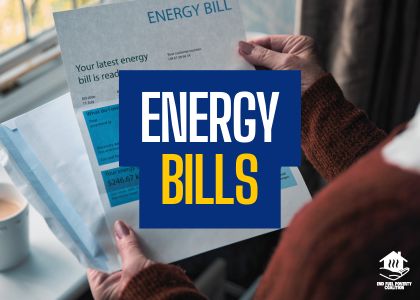Ofgem is expected to confirm that the unit cost of gas will fall slightly this autumn, but in winter 2020/21, households were paying just 3.5p per unit for gas. Today, the unit price is 6.33p – almost double – and it’s expected to fall only slightly this autumn.
A spokesperson for the End Fuel Poverty Coalition commented:
“The unit price set by Ofgem doesn’t just include the wholesale price, but also includes supplier costs and the charges caused by an ageing gas network.
“Gas prices don’t just affect gas bills. Under the energy market’s outdated ‘marginal pricing’ system, the cost of electricity is often set by the most expensive form of generation – usually gas-fired power stations. It’s like going to a bar and being charged for every drink as if you ordered the most expensive one on the menu.
“The reality is gas-fired electricity costs around c.£114 per megawatt hour, compared to just c.£41–£44/MWh for solar and offshore wind. Yet consumers are denied the benefits of these cheaper renewables.
“We’ve been urging the Government to fix this broken pricing system – but it’s unclear whether reforms are still on the table.
“Meanwhile, the North Sea is running out of gas. Even if all new fields are developed, the UK won’t produce enough to meet heating demand by 2027. This leaves us increasingly dependent on imports priced on volatile global markets – and concentrated in the hands of just a few companies like Equinor and Centrica.
“The increase to the price cap this time around is partly driven by the expanded Warm Home Discount – a vital lifeline for fuel-poor households. But instead of funding it through the £4 billion in excess profits energy networks pocketed after a regulatory decision, the Treasury chose to pass the cost onto households through bills.”

